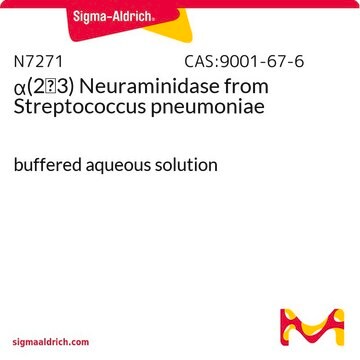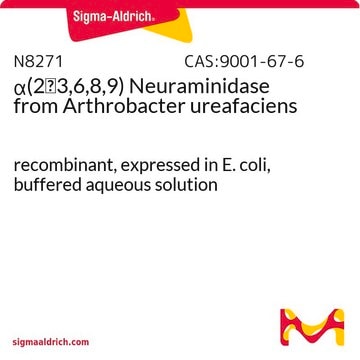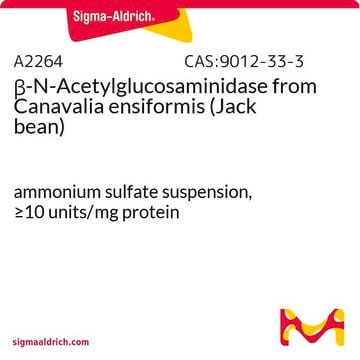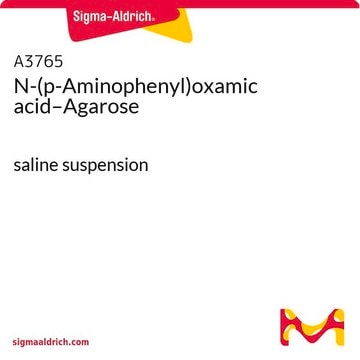N2876
Neuraminidase from Clostridium perfringens (C. welchii)
Suitable for manufacturing of diagnostic kits and reagents, Type V, lyophilized powder
Synonym(s):
Acyl-neuraminyl Hydrolase, Receptor-destroying enzyme, Sialidase
About This Item
Recommended Products
Quality Level
type
Type V
form
lyophilized powder
specific activity
≥0.1 units/mg solid (using mucin)
≥1.3 units/mg solid (using 4MU-NANA)
application(s)
diagnostic assay manufacturing
foreign activity
Protease and NAN-aldolase, present
shipped in
dry ice
storage temp.
−20°C
Gene Information
Clostridium perfringens str. 13 ... nanI(988807)
Looking for similar products? Visit Product Comparison Guide
General description
Application
Biochem/physiol Actions
Unit Definition
One unit will hydrolyze 1.0 micromole of 2′-(4-methylumbelliferyl)-a-D-N-actetylneuraminic acid per minute at pH 5.0 at 37 °C (using 4MU-NANA as a substrate)
Preparation Note
Analysis Note
Signal Word
Danger
Hazard Statements
Precautionary Statements
Hazard Classifications
Resp. Sens. 1
Storage Class Code
11 - Combustible Solids
WGK
WGK 1
Flash Point(F)
Not applicable
Flash Point(C)
Not applicable
Personal Protective Equipment
Certificates of Analysis (COA)
Search for Certificates of Analysis (COA) by entering the products Lot/Batch Number. Lot and Batch Numbers can be found on a product’s label following the words ‘Lot’ or ‘Batch’.
Already Own This Product?
Find documentation for the products that you have recently purchased in the Document Library.
Customers Also Viewed
Our team of scientists has experience in all areas of research including Life Science, Material Science, Chemical Synthesis, Chromatography, Analytical and many others.
Contact Technical Service











